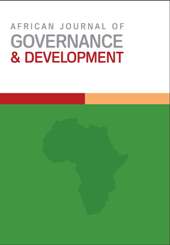Evidence of Factors Hindering Establishment of Viable Rural Development Action in Eastern Cape Municipalities
Main Article Content
Abstract
Efforts aimed at assuaging rural areas in South Africa date back to the post-transition todemocracy era in 1994. During this era, reforms and policy interventions aimed to enhance rural development, with a focus on economic growth within rural landscapes. The main argument in this article is that implementing viable rural development action requires a collaborative effort to address complex aspects of societal and economic transformation. The article draws from a study that examined factors hindering the successful establishment of viable rural development actions in the O.R. Tambo and Amahlathi District municipalities. Qualitative data were collected through in-depth interviews with 19 participants, including local economic development officers, entrepreneurs, NGOs, and councillors. The data were analysed using Atlas ti 9 software. The findings highlight several limitations in addressing local development actions, including malfunctioning leadership, climate change, criminal activity, limited access to reliable markets, and funding and skills deficits. To drive change, collaborative action platforms should be established to facilitate the sharing of traditional and innovative knowledge among rural communities and other non-state agents. Leveraging this knowledge and skills can lead to the adoption of best practices and new technologies. The article contributes to a body of knowledge that informs rural development policies and explores alternative ways of achieving development goals such as the infusion of best practices from exclusive top-down approaches to bottom-up approaches.
Article Details

This work is licensed under a Creative Commons Attribution-NonCommercial-NoDerivatives 4.0 International License.
